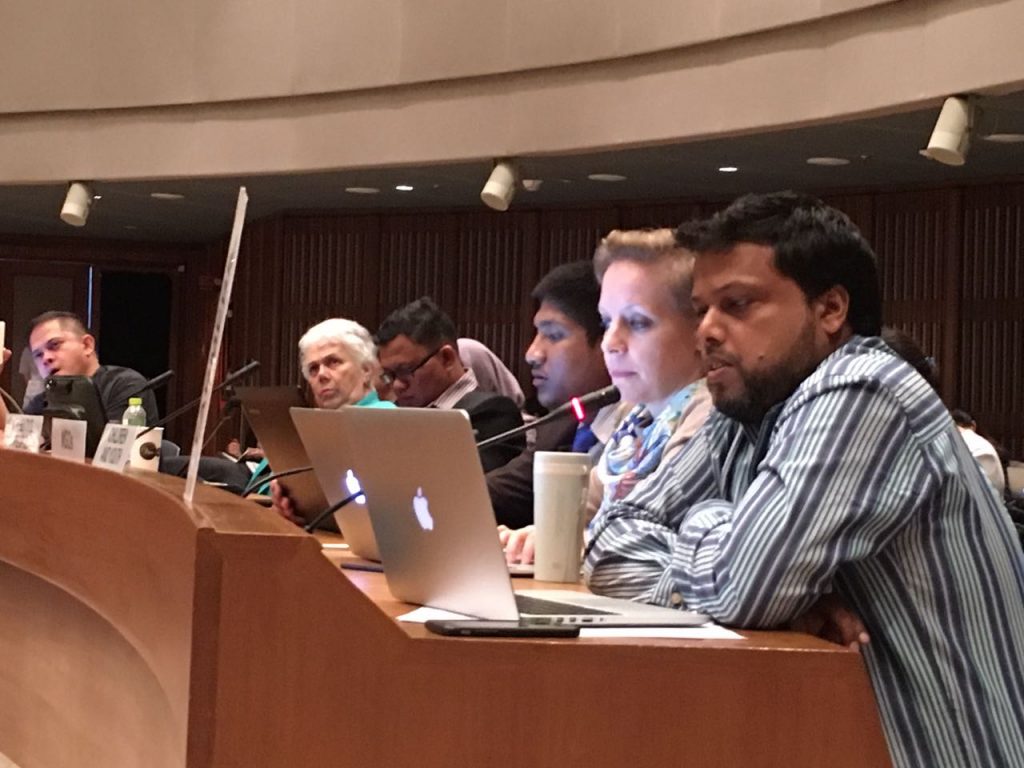Agenda Item 8
Wali Haider, Roots for Equity, Pakistan
Thank you Mr. Chairman!
I am Wali Haider from Roots for Equity, Pakistan on behalf of the Farmers Constituency of the Asia Pacific Regional CSOs Engagement Mechanism (APRCEM).
While we appreciate the space for interventions given to CSOs, we also would like to stress that we feel excluded to see no civil society being included in any of the today’s panel and the days to come. We believe that genuine inclusive participation of CSOs is necessary for the spirit of partnership that agenda 2030 puts so much emphasis on. We believe our inputs would be critical to the discussions in these meetings.
We emphasize that we need to look at pollution in a broader sense which includes genetic pollution and pollution from the use of pesticides and fertilizers. The neoliberal era has brought this planet beyond the threshold of ecological limits due to the development model based on over dependence on fossil fuel, extraction of mineral resources and concentration of wealth, power with fewer individuals and TNCs. The commodification of natural resources has also intensified, particularly of seeds by agro-chemical and biotechnology corporations through dispossession of local communities’ right to access and control over their local and indigenous seeds.
New emerging phenomena of land grabbing by investors has exacerbated environmental and livelihood crisis. The land is often used for the expansion of export crops that are dependent on chemical inputs as well as the production of agro-fuels which creates unhealthy competition with food production and severely restricts poor people’s access to land and food.
We would like to suggest that governments ensure strong policies for implementation of agroecology as well as support for small and landless farmers’ movements that are advancing the framework of food sovereignty. These farmers and small food producers are contributing to safe and nutritious food, to healthy soils, water, air and the environment as well as contributing to adaptation to climate change.
We demand for development justice so that the inequities particularly for small producers can be removed from our society. For this re-distributive justice, ecological justice and accountability to the people are most crucial. If we really want a pollution free world we must get rid of the structural barrier and hear the voices of marginalized communities which include small and landless farmers, fisherfolk, indigenous communities among others.

